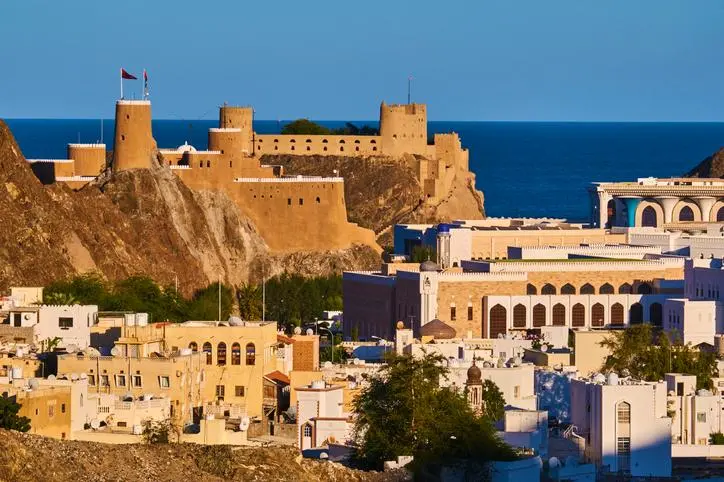PHOTO
Oman’s economy is set to recover in 2021, with non-hydrocarbon GDP growth of 1.5 percent as vaccine rollout gradually restores domestic activity along with the recovery of external demand, said the International Monetary Fund (IMF).
Oil production is projected to increase after the current Opec+ agreement expires in April 2022 said the Executive Board of the IMF as it concluded the Article IV consultation with Oman. Inflation has been subdued, it added.
The Omani economy was hit by a dual shock of the pandemic and a collapse in oil prices in 2020. Overall and non-hydrocarbon GDP are estimated to have contracted by 2.8 percent, and 3.9 percent, respectively. Labour market adjustment was facilitated by temporary wage cuts and a reduction in expatriate employment. The
The fiscal deficit and government debt rose sharply in 2020 but are projected to improve considerably over the medium term with the implementation of the authorities’ Medium-Term Fiscal Balance Plan.
The fiscal deficit widened to 19.3 percent of GDP in 2020, partly reflecting non-policy factors (notably the contraction in nominal GDP). It is projected to decline to -2.4 percent in 2021 and a surplus in 2022. Central government debt rose to 81.2 percent of GDP, with financing needs covered by domestic and external borrowing and asset drawdown, but is expected to decline sharply over the medium term.
Fiscal consolidation and higher oil prices are projected to narrow the current account deficit to -6.2 percent in 2021 and -0.6 percent in 2026.
There are substantial uncertainties around the outlook, with downside risks dominating, said the IMF Executive Board.
On the downside, Covid-19 variants would prolong the impact of the pandemic. Tighter global financial conditions could worsen the fiscal and external positions. Public debt remains vulnerable to risks, particularly from oil market developments and shocks to GDP growth, the exchange rate, primary balance, and interest rates.
A substantial decline in oil prices would increase gross financing needs and have negative spillovers in the non-hydrocarbon sector. On the upside, a strong roll-out of vaccination, higher oil prices, and continued implementation of structural reforms would considerably improve the outlook.
Executive Board Assessment
Executive Directors commended the Omani authorities’ swift and well-coordinated policy actions to address the health and economic effects of the Covid-19 pandemic. Looking ahead, Directors emphasized that macroeconomic policies should remain supportive until the recovery is fully entrenched and underscored providing additional time-bound and targeted policy measures for hard-hit sectors and households if needed.
Incomplete adjustment to the lower oil prices since 2015, and the twin shocks of the pandemic and the collapse in oil prices in 2020 amplified fiscal and external vulnerabilities. In this context, Directors welcomed the authorities’ strong commitment to implementing the Medium-Term Fiscal Balance Program to contain expenditure, reduce the dependency of revenue on hydrocarbon prices, and put debt on a firm downward path.
They encouraged the authorities to sustain outreach to bolster public support for reforms. Establishing a clear fiscal anchor would help achieve fiscal consolidation. Directors supported strengthening overall public sector governance and called for expanding fiscal coverage beyond the budgetary central government and providing more detailed budget and debt data.
A robust sovereign asset and liability management framework is essential to identify and mitigate risk exposures and secure the sovereign balance sheet. Directors welcomed ongoing efforts to strengthen the capacity of the debt management office.
Directors agreed that the exchange rate peg remains an appropriate policy anchor for Oman, helping to deliver low and stable inflation. As regards the financial sector, Directors welcomed the continued resilience of the sector and ongoing capital market reforms. At the same time, while the banking system remains sound, continued vigilance is required to contain financial stability risks given the substantial uncertainties in the outlook.
Directors also called for a careful management of the sovereign-bank nexus over time to support banking system resilience. They welcomed the AML/CFT mutual evaluation in 2021 and Oman’s ongoing strengthening of the framework.
Directors welcomed recent progress in structural reforms aiming at boosting non-hydrocarbon sector growth and supporting external sustainability. Priority should be given to improving flexibility in the labour market, promoting employment in the private sector, and further encouraging female labour participation.
Directors welcomed efforts to strengthen the social safety net and commended the authorities for accelerating SOE reforms to enhance competition and efficiently manage public resources. – TradeArabia News Service
Copyright 2021 Al Hilal Publishing and Marketing Group Provided by SyndiGate Media Inc. (Syndigate.info).





















